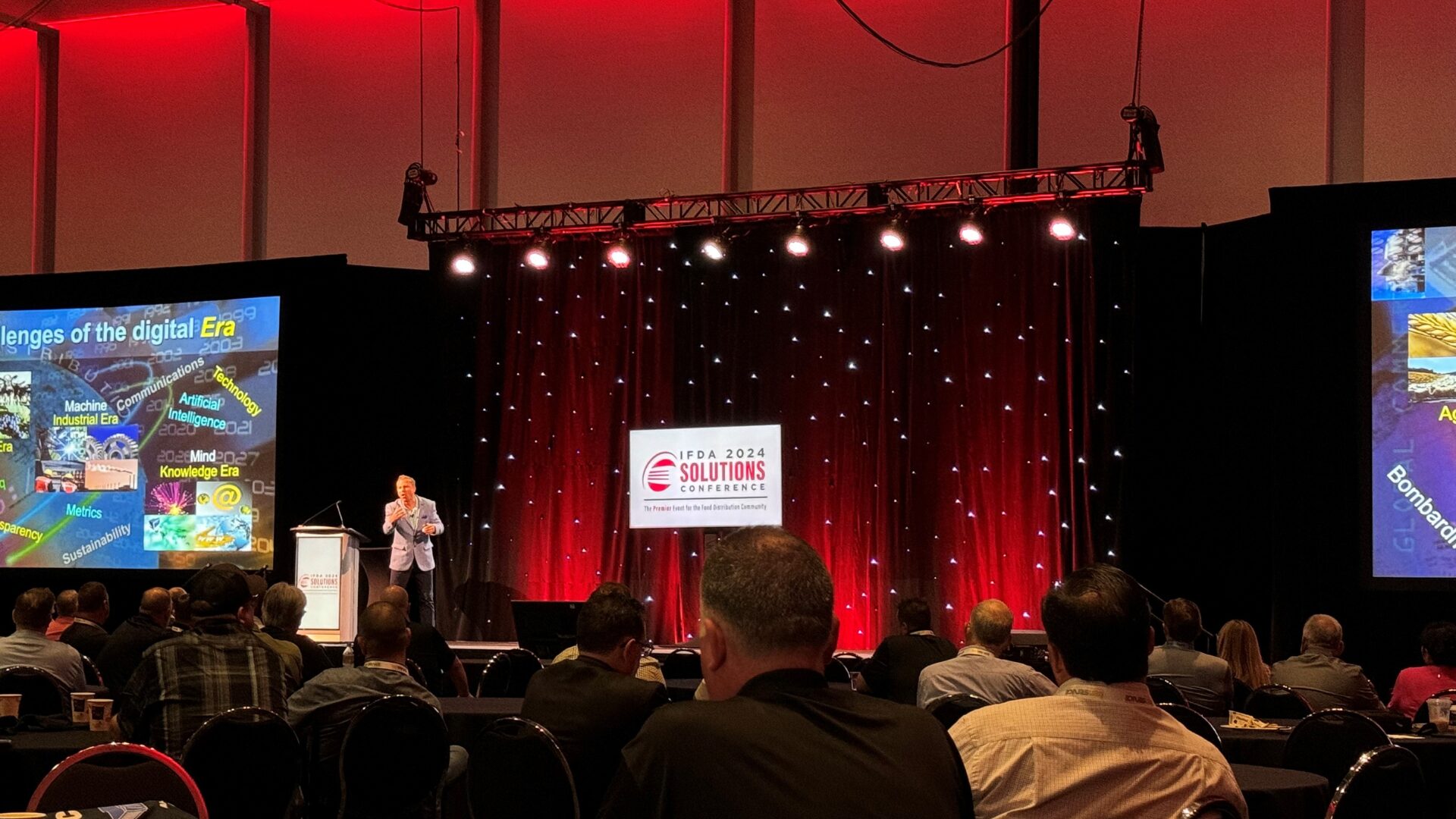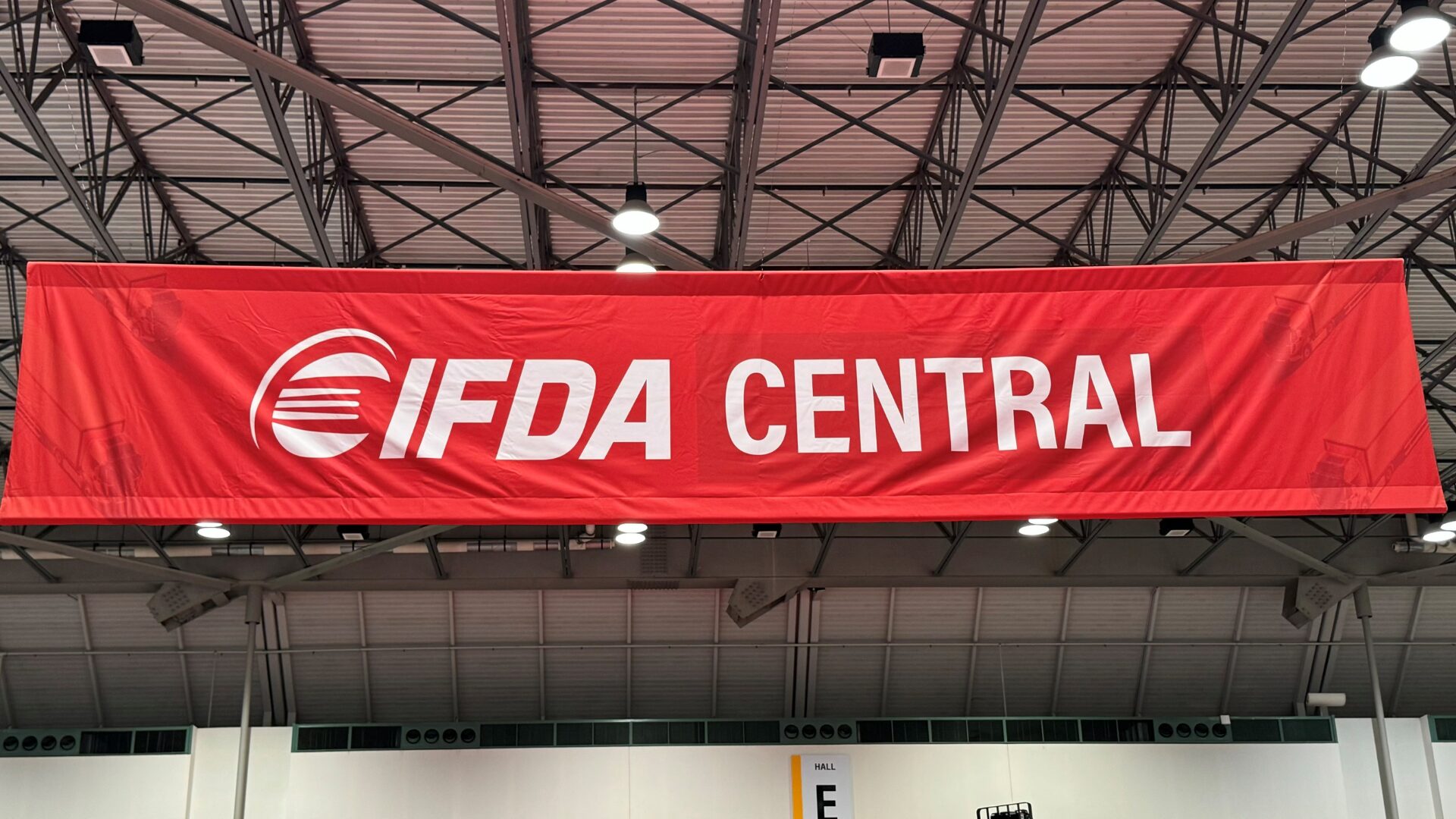KANSAS CITY, Mo. – In many ways, it’s a new world in the food industry, and new leadership will be necessary to navigate these changes. At the 2024 Solutions Conference, hosted by the International Foodservice Distributors Association, many educational sessions focused on developing these new, increasingly necessary leadership skills.
Emerging technology, economic conditions, and differentiated workforces are causing foodservice distribution leaders to adjust their leadership styles; that said, a focus on the expanding boundaries of possibility, the need for developing trust, and leading by example could all provide leaders with the tools needed to remain successful in the current world.
The Expanding Boundaries of Possibility
Dr. Pippa Malmgren, founder and CEO of the Geopolitica Institute, kicked off day one of the conference with a presentation connecting geopolitics and advancing technology to showcase the emerging world – a world that business leaders need to be aware of.
A new space race was playing out before our eyes, according to Dr. Malmgren. Emerging technology could lead to unlimited energy, resources, connectivity, and computational power; she noted that Caltech and Airbus had already developed a space-based solar power system which could provide clean, green, and cheap electricity.
Meanwhile, the development of an interplanetary internet would also allow for the harvesting of energy and materials from other celestial bodies in the solar system, including moons and even asteroids. These types of initiatives could cause energy and raw materials costs to fall precipitously.
These advances were occurring during a period of geopolitical unrest, which she predicted would end as world leaders found that the cost of war was too high. This “peace dividend” could be a boon for the foodservice distribution industry and the economy at large, she said.
Dr. Malmgren argued that the future of competition wasn’t on price, but one centered on trust. In this new world, rebuilding would lead to more opportunity for the food industry as war-torn regions benefited from innovation. It could be a change from a scarcity mindset to one of abundance.
“One simple concept is in the word ‘leadership.’ We usually put all of the emphasis on ‘leader.’ Today, we need to put the emphasis on the ‘ship.’ Who is part of the ship, who is going to be able to build based on these new possibilities?” she asked the audience.
Intellectual Capitalism and Developing Trust
Dr. Nick Bontis, a tenured professor and management consultant, was the keynote speaker for day two of the event. He opened by asking the audience what the most valuable resource was; although many in the audience said “time” was the most valuable, he argued it was not time but attention that mattered most.
Dr. Bontis noted his research found the average-knowledge worker in America gets about 80 e-mails a day – with only 8 of those e-mails providing stakeholder value. He argued the true goal for leaders is to place attention on the things that need to be prioritized, and to not be bogged down in the distractions.
The foodservice industry was currently engaged in “intellectual capitalism” – or the exchange of ideas. The industry in the current day needed to provide trust, service, reliability, experience, and expertise; combined, these attributes could provide customers a sense peace and calm. He noted these were the building blocks of rapport, which was the social antecedent to trust.
Dr. Bontis shared a graph showcasing the ways to bind internalized, or tacit knowledge, among employees to lead to innovation. He explained the four steps worked in a feedback loop:
- Socialization: exchanging tacit knowledge between two others
- Externalization: giving tacit knowledge permanence through structure
- Combination: collating externalized information from across an organization for innovation
- Internalization: learning from combined and externalized information to develop tacit knowledge
Gridiron Greats Showcase
The closing session of the event featured four former and current Kansas City Chiefs football players, including Tim Grunhard, Dante Hall, Will Shields and Mike Caliendo, who shared stories and lessons on what leadership could look like.
The players explained leadership as they saw it, with a focus on quiet leadership instead of the “rah-rah” type seen so often on television. They noted it was important to watch and listen rather than speak, and to lead by example for younger generations.
The sports stars also explored how, when a person takes on a leadership role, the dynamic no longer focuses on the individual. Rather, the focus needs to shift to the team.
Caliendo, a current reserve for the Kansas City Chiefs, summed up his approach to leadership as thus: “be where your feet are, and work your ass off. I mean, if you do those things, pretty much everything else takes care of itself.”
The Food Institute Podcast
Restaurant results for the second quarter weren’t stellar, but people still need to eat. Are they turning to their refrigerators, or are restaurants still on the menu for consumers? Circana Senior Vice President David Portalatin joined The Food Institute Podcast to discuss the makeup of the current restaurant customer amid a rising trend of home-centricity.










